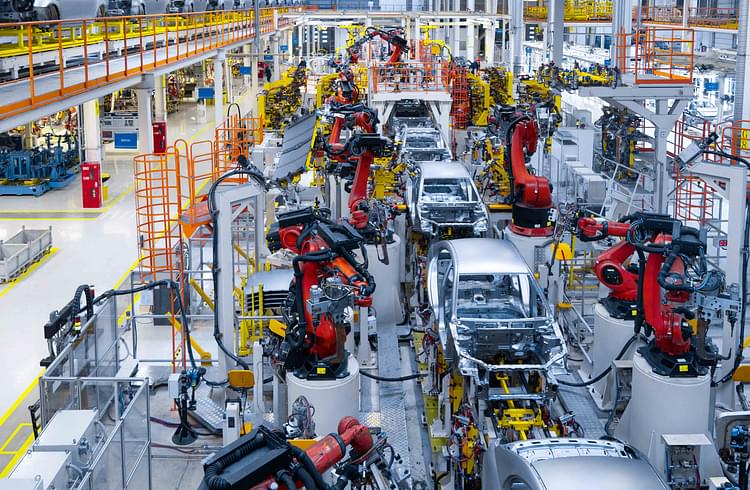Government Opens Portal for Companies to Apply for New Electric Car Manufacturing Scheme
The Scheme to Promote Manufacturing of Electric Passenger Cars in India (SPMPCI) allows OEMs to import electric cars with a minimum value of $35,000 at a reduced customs duty of 15% for five years, subject to a minimum investment of Rs 4,150 crore to manufacture cars in India.
The government on Tuesday opened the online portal for companies to apply for participation in the new electric car manufacturing scheme that allows limited imports of electric cars at a reduced import duty. The portal will be open until October 21, 2025.
The Scheme to Promote Manufacturing of Electric Passenger Cars in India (SPMPCI) allows global carmakers to import Completely Built-Up Units (CBUs) of electric cars with a minimum Cost, Insurance, and Freight (CIF) value of US$35,000 at a reduced customs duty of 15% for five years, against the normal duty of 70-110%, subject to certain investment and manufacturing commitments. The maximum number of cars that can be imported in a year under the scheme is limited to 8,000 units.
The policy states that companies will be required to set up manufacturing facilities in India with a minimum investment of Rs 4,150 crore and commence commercial production within three years to avail of this lower import duty. There is also a clause on domestic value addition – the manufacturers will have to achieve 25% domestic value addition within three years and further increase it to 50% by the fifth year.
The companies will have to back their investment commitment with a bank guarantee in lieu of the customs duty forgone. The bank guarantee, which should be an unconditional, irrevocable guarantee issued by a scheduled commercial bank in India, will be invoked if the company fails to meet the minimum investment and domestic value addition criteria.
The recently released guidelines for the scheme introduce key changes from last year's announcement. A significant update is the inclusion of brownfield projects for investment, requiring clear physical separation from any existing manufacturing facilities. This expansion also allows for investments in research and development (R&D) and electric vehicle charging infrastructure, broadening the scope of eligible activities.
Unlike R&D allocation, which has no maximum limit within the total committed investment target, expenditure incurred on charging infrastructure would be considered up to a maximum of 5% of the committed investment.
RELATED ARTICLES
Why Japan’s Kyokuto is Doubling Down on India’s Commercial Vehicle Surge
Satrac is leveraging the expertise of its Japanese parent, Kyokuto, to enter the urban waste management and recycling ve...
Bharat Forge and VVDN Technologies Sign MoU for Strategic Collaboration
The two Indian companies have agreed to jointly pursue opportunities in automotive, defence, and data centre sectors, co...
Apollo Tyres Holds 7th Global Partners' Summit Focused on Growth and Sustainability
Apollo Tyres gathered global partners in India for a day of strategic dialogue, plant visits, and supplier recognition.






 By Kiran Murali
By Kiran Murali
 24 Jun 2025
24 Jun 2025
 4323 Views
4323 Views





 Shahkar Abidi
Shahkar Abidi


 Sarthak Mahajan
Sarthak Mahajan

 Shristi Ohri
Shristi Ohri

